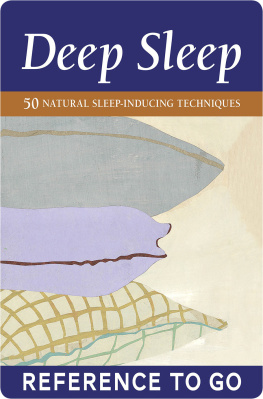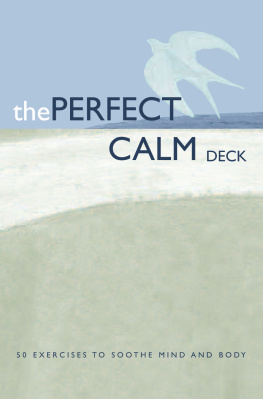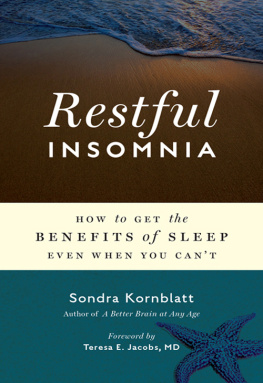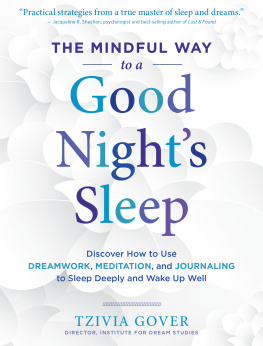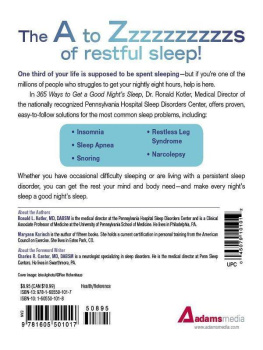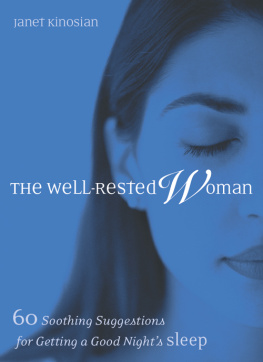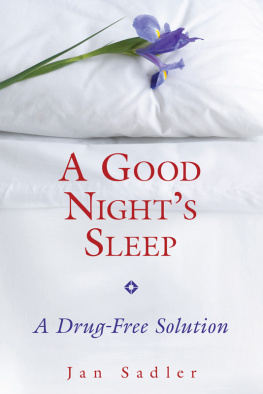
The Modern Sleep Challenge
In this fast-paced world, we are often expected to focus our attention on many different tasks at once. Juggling the pressures of our work and home lives means that we have limited time to catch up on our rest. Furthermore, increasingly long days at work mean that we often end up out-of-synch with our natural body clock, perhaps snatching a late supper after working well into the night. Night owls may be forced to behave as larks, and larks to behave as owls. It is not surprising, given the demands placed on our time, that sleep quality suffers as a result.
Many of us experience anxiety and stress, and these too have adverse effects on our sleep. We may find it difficult to wind down after a stressful day, and consequently lie awake for an hour or more, reviewing a list of unresolved problems.
Deep Sleep provides the perfect antidote to such modern ills. It offers ways to relax before bedtime, so that sleep comes naturally. We might go through a specially prepared pre-sleep ritual whose very predictability has a calming effect, or we might prefer to play a CD of ocean sounds, make a milky bedtime drink, take a warm bath with essential oils, or take part in a relaxing mutual massage with our partner. And if we still find ourselves tossing and turning during the night, there are various rescue techniques for bringing sleep our way.
Even if you feel that your sleep quality is perfectly acceptable already, it is worth trying some of the tips suggested in these pages. You may be surprised to discover that your slumbers can become even deeper and more refreshing.
Why Is Sleep So Important?
We spend approximately one third of our lives asleep, which is more time than we spend with our friends and family, or even working. Why is this? Or, to put the question another way, what is sleeps biological function?
Sleep is a state of suspended awareness. Special mechanisms in the brain filter out the flow of information through our senses. At the same time, brain signals immobilize many of the bodys main muscles. Perhaps surprisingly, the purpose of the shutdown is not energy conservation: the amount of energy saved during eight hours of sleep is roughly equivalent to that of a glass of low-fat milk! It is more likely (though the science of the subject is still far from certain) that sleep provides the body with an opportunity to repair wear and tear, and the brain with a quiet period for reorganizing its days worth of data.
What we can be sure of is that evolution would not bother to have made us sleep if it did not greatly benefit our health and wellbeing. And we all know how irritable we can feel when were deprived of sleep, or when the quality of our sleep is for some reason diminished. We know by experience that a good nights sleep leaves us feeling fresher and more energetic the next morning.

Milk contains the sleep-promoting chemical tryptophan, so try drinking it at bedtime in a delicious, warming, comforting nightcap. Place 8 fluid ounces of milk in a small saucepan and bring to a boil. Reduce the heat and simmer for a couple of minutes, then pour the milk into your favorite mug, add a little honey to sweeten if you wish, and sip it while its still hot. You will soon find yourself drifting into restful sleep.


A simple breathing exercise can help to clear your mind and ease your body at the end of a busy work day. Sit comfortably in a quiet place, close your eyes, and focus on your breathing. Make it slow, deep, and rhythmic. Visualize tension leaving your mind and body as you exhale, and peace returning as you inhale. Spend at least ten minutes on this exercise when you get home from work, and do it again for five minutes just before retiring.


A room temperature of around 62F (65F for infants) is thought to be most conducive to sleep, but its important to identify what works best for you. Remember that the bodys temperature falls through the night, reaching its coolest at around 4 a.m.in winter you may like to have your heating come on just before then. If you think you might fall asleep on summer nights under just a light covering, keep a blanket on hand for early morning.


Good ventilation as you sleep is essentialwithout it you will end up breathing in your own exhaled air, and wake up feeling groggy in the morning. Fresh air is best, so if possible open the bedroom window wide during the evening, and have it slightly open overnight. However, if this means you also have to endure noise and pollution, try sleeping with the bedroom door open instead. In hot weather, keep the air circulating with a fan.


Your bed is your best friend when it comes to a great nights sleep. Before buying a bed, spend at least ten minutes lying flat on it to make sure the mattress will provide the correct level of supportyour hand should slip easily but snugly between the mattress and the small of your back. Pillows are just as important. Feather pillows mold well to the shape of your head, but synthetic is best if you suffer from allergic reactions.


Choose sheets, pillowcases, and duvet covers made from natural fabrics such as cotton or linenthey feel wonderful, and they will absorb perspiration and allow your skin to breathe. If you like to use blankets, wool or cotton will keep you comfortably warm, not hot. A good choice of bedding is the all-seasons duvet, which consists of a medium-weight duvet for spring and fall, and a light duvet for summer; the two parts are joined together for winter use.


